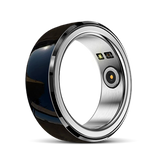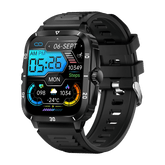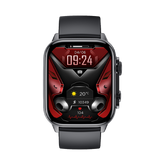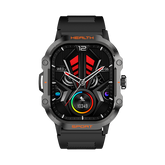Wired vs Wireless Earphones – Which Should You Choose?
Wired or wireless earphones, if you are confused between what to choose? This guide solves all of your problems.
One of the most common questions is, Are wired earphones better than wireless? or are wireless earphones better than wired ones? If you are planning to buy a pair of earphones, this question can torment you because nobody wants to spend on something and then regret it later. While wireless earphones seem like the future, wired earphones are still appreciated for the little things that they offer.
Bluetooth earphones vs wired earphones
Let us compare wired earphones vs wireless ones based on functionality, usage, what it has to offer, when one is better than the other, use cases, advantages, disadvantages, and many other factors. Analyze each parameter and make a note at the end of each, finally choosing the one that meets all of your needs.
Functionality and features
Bluetooth earphones
-
No wire, no untangling: Bluetooth earphones remove the hassle of untangling, which means you are free to move. This gives users the convenience and comfort to listen to music or watch movies freely. If you are looking for the best wireless earphones for active lifestyles, Bluetooth earphones are a great choice.
-
Smart features: One of the biggest advantages of wireless earphones is gesture controls. While wired earphones do offer some functionality, it becomes hard to find the controller every time. Modern wireless earphones like RTHMBuds Sonic Wave 70 - White come with advanced gesture controls like voice assistant integration, noise cancellation, etc.
-
Ease of use: Wireless earphones are synonymous with comfort and ease of use. Most of the modern earphones come equipped with the latest technology that connects seamlessly with multiple devices. This means you don't have to plug in and out every time you switch between your phone or tablet.
Wired earphones
Low latency: Wired earphones connect to devices through an audio jack or charging port; this direct connection ensures low latency. Additionally, these earphones are known to deliver the same audio quality that the artist has recorded in the studio without any loss.
No need to charge: One of the biggest advantages of wired earphones is that they need not be charged every now and then. This means you can conveniently plug in anytime of the day and enjoy media without the need to worry about the charge.
Simplicity: While wired earphones tangle very easily, they are pretty straightforward to use. You just have to plug it in and you are ready to use it. You don't have to worry about Bluetooth or connectivity issues every time.
Usage Scenarios and When One Is Better
When to Choose Bluetooth Earphones
On the Move: If you’re an active person who exercises, jogs, or commutes on crowded public transport, Bluetooth earphones let you move freely without the tether of a cable.
Modern Device Compatibility: Many newer devices have done away with headphone jacks. Bluetooth earphones pair seamlessly with smartphones, tablets, and even smartwatches.
Convenience and Flexibility: For everyday use where convenience trumps absolute audio perfection, the wireless design offers a cleaner, cable-free experience.
When to Choose Wired Earphones
Audio Purists and Critical Listening: If you value the highest sound quality possible—say, for studio work, audiophile listening, or precise monitoring—wired earphones generally provide a cleaner, more reliable signal.
No Charging Hassles: For long listening sessions where you don’t want to worry about battery life, wired earphones simply work as long as your device is powered.
Budget Considerations: Wired options often come at a lower price point. If you’re on a tight budget, you might get better sound quality for less money.
Situations with Minimal Movement: At home or in the office, where you don’t need to be mobile, wired earphones can be an excellent option.
Advantages and Disadvantages
Bluetooth Earphones
Advantages:
-
Mobility: Enjoy total freedom without cables.
-
Modern Features: Incorporate smart controls and noise cancellation.
-
Versatility: Easily switch between devices.
Disadvantages:
-
Battery Dependency: Must be charged regularly.
-
Potential Latency: There may be slight delays, which could affect video watching or gaming.
-
Higher Cost: Often more expensive due to the added technology.
Wired Earphones
Advantages:
-
Sound Quality: Delivers consistent, uncompressed audio.
-
No Battery Issues: Always ready to use, with no need for recharging.
-
Cost-Effective: Generally cheaper than wireless options.
Disadvantages:
-
Limited Mobility: The cable can restrict movement and be inconvenient during exercise.
-
Compatibility Issues: Newer smartphones might lack the traditional headphone jack, requiring an adapter.
-
Physical Wear: Cables can become frayed or tangled over time.
RHTMfit’s Advantage
If you are looking for wireless earphone options, you would want a product that you can rely on. With low latency, easy connectivity, and crystal clear sound, if these are what you want, RTHMFit offers two wireless earphones with noise cancellation.
RTHM Pulse 60
What It Offers:
-
Great Noise Cancellation:
The Pulse 60 uses both Active Noise Cancellation (ANC) and Environmental Noise Cancellation (ENC) so you can focus on your music or calls, even in noisy places. -
Comfortable & Stylish:
With an ergonomic design and available in Black, White, Blue, and Gold, these earbuds are as stylish as they are comfortable. -
Easy Controls:
The touch controls on a 1.58″ AMOLED screen (228×460 resolution) let you adjust settings, manage your music quickly, make quick calls, send messages and do many more things without your phone. You can stay focused while driving, working out, or doing anything important. -
Battery Life:
Each earbud has a 30mAh battery, with a 400mAh charging case giving you about 4 hours of continuous playtime.
Who They’re For:
If you need earbuds that look good and cancel out background noise while you’re on the move, the Pulse 60 might be your best bet.
RTHM Sonic Wave 70
What It Offers:
-
Audiophile Sound & Noise Cancellation:
The Sonic Wave 70 is built for those who want top-notch sound. Its advanced ANC keeps unwanted noise out so you can really hear your music or take calls clearly. -
Sleek Design:
Coming in a clean white finish, these earbuds have a modern, minimalist look that appeals to style-minded users. -
Battery Life:
With a 30mAh earbud battery and a 200mAh charging case, it also offers around 4 hours of playtime.
Wired or wireless earphones which is better?
Wired earphones typically offer uncompromised sound quality and reliability without the need for charging, making them a favorite for audiophiles and studio work. On the other hand, wireless earphones bring the convenience of cord-free freedom, modern features like active noise cancellation, and easy pairing with multiple devices, which is ideal for daily commutes, workouts, or on-the-go use. Ultimately, the best choice depends on what features matter most to you.
Which is good wired or wireless earphones?
All in all, both Bluetooth and wired earphones have their unique strengths; however, more and more brands are moving towards the no-headphone jack trend. Wired earphones are slowly disappearing. Additionally, with the added convenience and advanced wireless technologies, the demand for wireless earbuds is on the rise. However, you need not spend a fortune to get some good quality earphones. Visit our website and order your first pair of earphones with an exciting opening offer.










